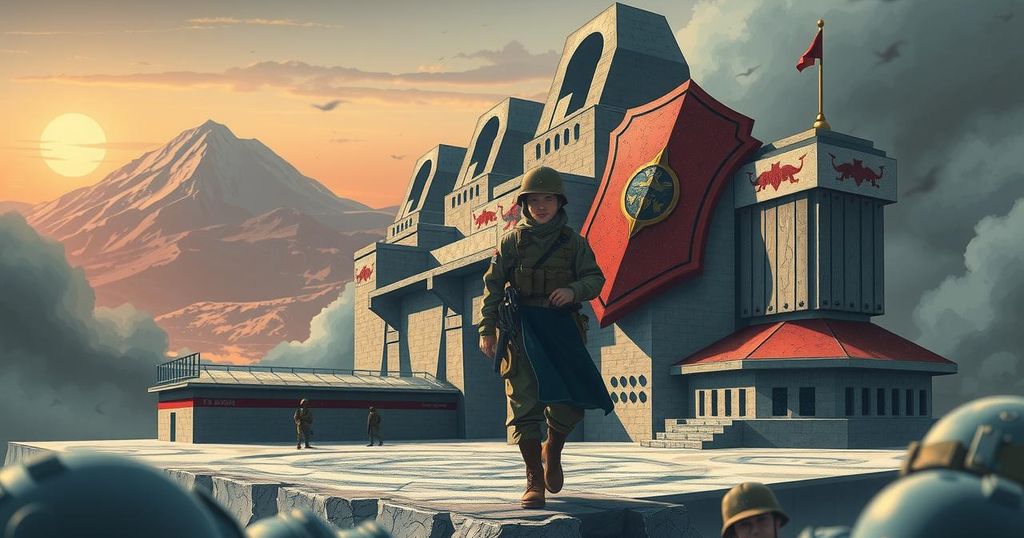President Tshisekedi of DRC states that military forces are undertaking vigorous actions against the advancing M23 rebels backed by Rwanda. The escalating situation raises humanitarian concerns as significant regions fall into rebel hands. Tshisekedi condemns international inaction regarding the security crisis and faces pressure to engage in peace talks while the M23 continues its campaign, threatening regional stability.
President Felix Tshisekedi of the Democratic Republic of Congo has asserted that Congolese forces are undertaking a decisive military response against the advance of the M23 rebels, who are reportedly receiving support from Rwanda. Tshisekedi condemned the global community’s lack of action amid this escalating security crisis, deeming it an affront to the DRC’s sovereignty.
The M23 group’s recent successes in capturing significant areas in eastern DRC, including critical regions near Goma, have instigated concerns for an emerging humanitarian disaster. Tshisekedi emphasized that an organized military strategy is actively being deployed to combat these insurgents. He pointed out that silence from the international community exacerbates the situation, with potential repercussions extending beyond DRC’s borders.
In recent confrontations, the M23 has made considerable territorial gains, reportedly overtaking two districts in South Kivu after pushing back the Congolese army. The DRC’s army has yet to release a statement regarding these developments, following violent clashes that have led to numerous casualties over the past several days.
In Goma, residents are beginning to emerge from their homes after a period of intense fighting. However, the local population has reported dire conditions, including shortages of food and medicine. Tshisekedi has faced pressure to engage in dialogues to resolve the conflict but opted out of a meeting with Rwanda’s President Paul Kagame, despite regional calls for a peaceful resolution to the hostilities.
The UN, and various international bodies, have urged Rwanda to withdraw its military from the region amidst fears of a broader escalation in violence. Conversely, Rwanda’s representatives assert that their military actions are focused on countering threats posed by Congolese militias. Additionally, reports indicate that unrest has erupted in Kinshasa as citizens express their frustration over the perceived inaction of international powers.
As the M23’s advance continues, there are fears that DRC’s mineral wealth could be exploited further amid the chaos. Tshisekedi’s administration accuses Rwanda of instigating conflict to gain control over the region’s lucrative resources, a claim bolstered by findings from UN experts, though Rwanda has denied these allegations. Such developments underline the urgent need for coordinated international intervention and a resolution to the ongoing crisis in the DRC.
The Democratic Republic of Congo (DRC) has been embroiled in conflict for decades, particularly in its eastern regions, which are rich in minerals. The M23 militia is historically linked to tensions following the Rwandan genocide in 1994, leading to multiple armed groups vying for power and control in the area. Tensions have recently escalated as the M23 launched a new offensive, capturing significant territories and prompting concerns for humanitarian crises due to displacement and resource shortages among the affected populations. International calls for intervention and dialogue have increased as regional stability hangs in the balance.
In summary, President Tshisekedi’s resolve to mount a vigorous defense against the M23 advances reflects the DRC’s struggle against longstanding insurgencies exacerbated by international inaction. The rising humanitarian crisis, coupled with fears of further escalation, highlights the urgent need for effective diplomatic engagement and resolution strategies. The DRC’s mineral wealth remains at risk amidst the ongoing turmoil, underscoring the intersection of geopolitical interests and local conflicts.
Original Source: www.france24.com






